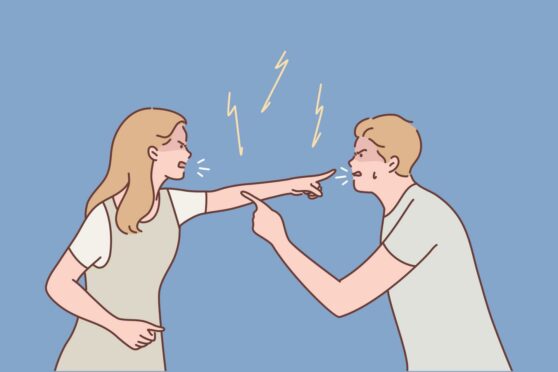You’re on your way to work and you’ve just got that feeling of dread.
It’s going to be a really busy day and there’s yet another meeting to fit in when you’ve got so much on your to-do list already.
Sound familiar? You’re not alone. And Aberdeen psychologist Lindsey Beedie says it’s a common feeling to have.
Especially when you’re on your way to work on a Monday morning after enjoying a relaxing weekend.
The clinical psychologist has spoken to us as part of our Mental Health Toolkit and offers advice on how to deal with work anxieties and how to work out whether you really need a new job.
Work out the cause of the stress
There are two reasons you could be feeling anxious and Dr Beedie says it’s helpful to work out which one you’re facing.
Is there something underlying, any particular stresses at work that need to be highlighted to your employer? Or is it just a fleeting thought?
Dr Beedie said: “Often when we get the Monday morning dread it’s good to think about our habits more holistically – are we spending most of our week working and we’re not getting any downtime?
“Overworking can contribute to that stress so we’re constantly living in that demand area and never getting the chance to unwind and build up our core resources again.
“It’s no wonder that we’re feeling stressed and overwhelmed and it almost feels like a luxury to have that downtime, when really we need that to recover from working and the stresses of modern-day life.”
Do I need to change my job?
It’s easy to come to the conclusion that you need a new job because you’re not enjoying your work.
But Dr Beedie, of Beedie Psychology Services, highlights that this is not always the case.
“Sometimes dread comes from our thoughts about how we perform,
anticipating the worst of a stressful or difficult situation at work,” she said.
“When we feel uncomfortable emotions we try and avoid what we think is the cause of them, which is why we may think about changing career.
“It might be helpful to ask if these thoughts and feelings weren’t there
how would work be?
“If the task or meeting you’ve been dreading gets done, will work seem better?”
‘Think about what is triggering your anxiety’
It can also help to remind yourself of a time you dealt with a difficult task before and coped better than you thought you would.
Many people feel that changing to a less demanding role would still bring them stress because they would lose job satisfaction.
This can be a sign that some additional support with stress management at work may be helpful instead.
But, of course, it may be the case that leaving your current demanding role is the best move for you.
“Think about what is triggering this anxiety,” she advises. “Is it because you’ve got anticipatory anxiety and you’re getting caught up in that feeling?
“Or is it identifying you’re in a job you’re not happy with?
“Look at what you enjoy about the job you’re in, and what you’re not enjoying and if there’s anything you can change about that.
“And if not, is there another career that excites you more?
“It’s about thinking about what you enjoy and what’s important to you.”
Dr Beedie’s top tips on coping with work anxiety:
-
- Every Friday write a list of the tasks you’ll need to complete the following week so it’s down on paper and out of your head.
- Make sure you plan activities you enjoy on weekdays too – not just at the weekend.
- Recognise that your thoughts are just thoughts, they’re not facts.
- When we’re caught up with a ruminating mind we’re often sitting or lying down, try doing an activity such as going for a short walk instead.
- Limit your alcohol intake the night before work because you can feel anxious when it wears off.
- Make sure you unwind every night before you go to bed.












